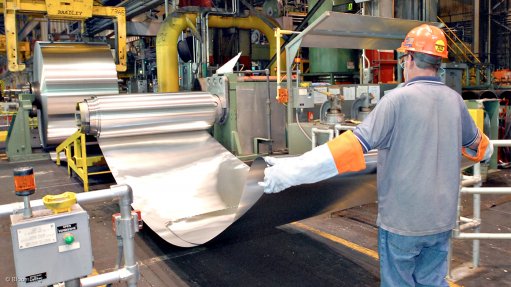
Photo by: Bloomberg
Returning to levels last seen in the first half of 2014, when the South African economy was rocked by a lengthy platinum- sector strike, the Rand Merchant Bank (RMB)/Bureau for Economic Research (BER) Business Confidence Index (BCI) has continued to decline, falling by a further six index points in the second quarter of the year to 43.
Noting that a growing majority of the 2 000 firms polled in the building, manufacturing, retail, wholesale and motor trade sectors regarded current business conditions as “unsatisfactory”, RMB outlined this month that the index’s retreat was likely the result of a drop in confidence among new-vehicle dealers and retailers.
This despite companies in these sectors showing improved business sentiment in the first quarter of the year.
“Having jumped from 30 to 44 index points in the first quarter, new-vehicle confidence plunged to 23 in the second quarter. Not only did dealers’ expected improvement in sales fail to materialise, but sales also sustained their particularly weak first-quarter levels,” said the bank.
It further asserted that rising petrol prices, growing fears of even higher electricity tariffs and an imminent interest rate hike had weighed on confidence in the three months under review.
Confidence in the building and manufacturing sectors, meanwhile, remained flat at their respective first-quarter lows, while an earlier recovery in retailers’ confidence in the first quarter did not last, with the index falling by eight points to 52.
At 48, confidence in the building sector was essentially unchanged in the second quarter, but still far lower than the 66 points registered at the end of 2014.
“It seems as if the boom in residential activity has faded somewhat, with a small majority of building contractors now unsatisfied with prevailing business conditions,” the index read.
The mood among manufacturers also remained little changed, with this index dropping by one point to 29.
“This means a staggering seven out of every ten manufacturers surveyed are unhappy with things as they stand,” said RMB.
Reflective of this, manufacturers were compelled to cut back production as a result of stocks of finished goods rising on account of an unexpected fall in domestic and export sales.
As in the first quarter, sales of semi- and nondurable consumer goods remained subdued, while sales of building materials and hardware again did “relatively well” in the second quarter.
The wholesale industry was the only sector that showed an improvement in sentiment, rising by three points to 64 in the second quarter.
Reflecting on the index, RMB chief economist Ettienne le Roux said a lack of demand lay at the heart of the decline in business confidence in the second quarter.
“Worrying is the fact that this reflects both in persistent weak domestic expenditure, as well as in an apparent relapse in foreign demand for locally manufactured goods.
“Indeed, the economy is being buffeted from all over, in the process being made even more vulnerable by increased uncertainty, owing to, among other things, political, economic policy and labour developments, as well as the escalation of load-shedding.”
Noting that, for the greater part of the past five years, the RMB/BER BCI had hovered just below the neutral 50-point mark, he added that this was consistent with the economy stagnating.
“To be sure, another two years of the same and South Africa will have experienced five consecutive years of around 2% a year growth. Since 1994, the economy has never experienced such a prolonged weak growth phase,” he cautioned.